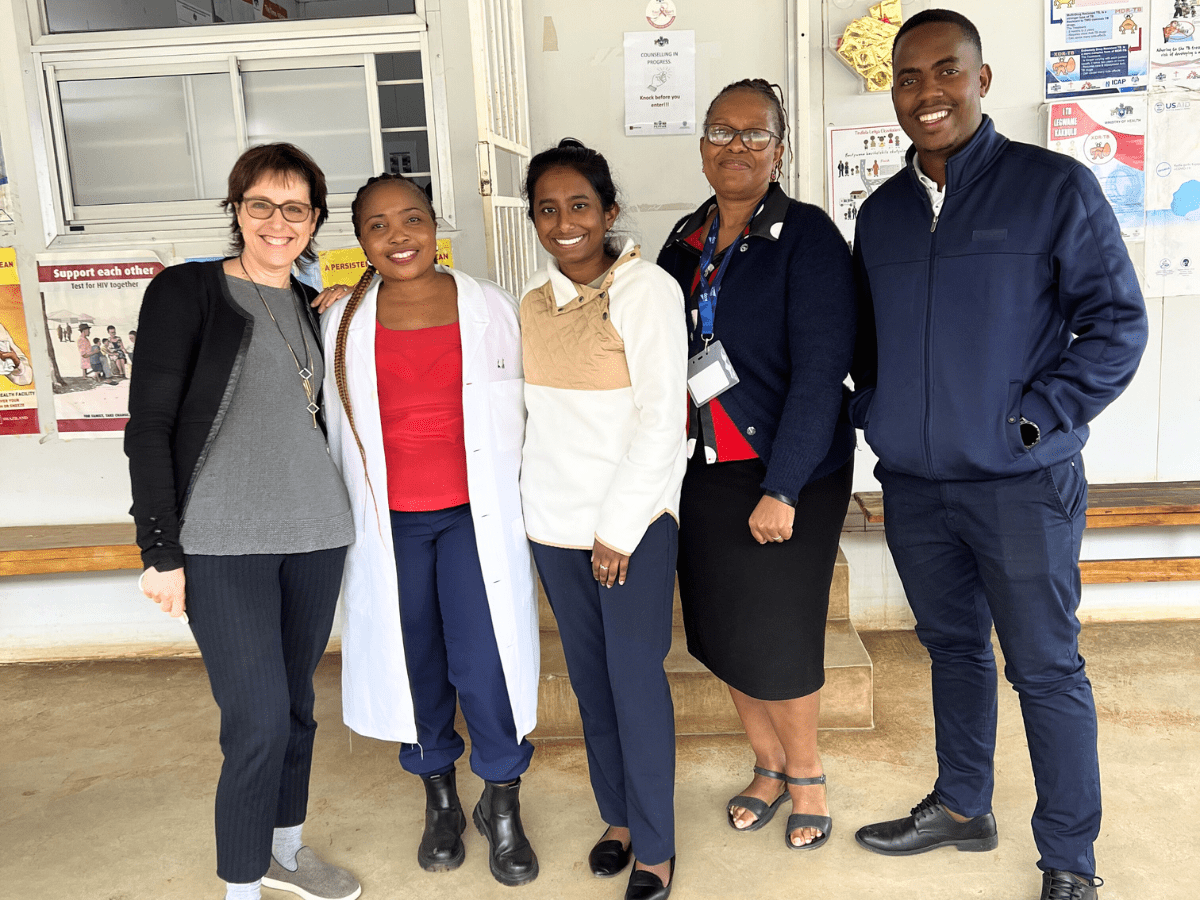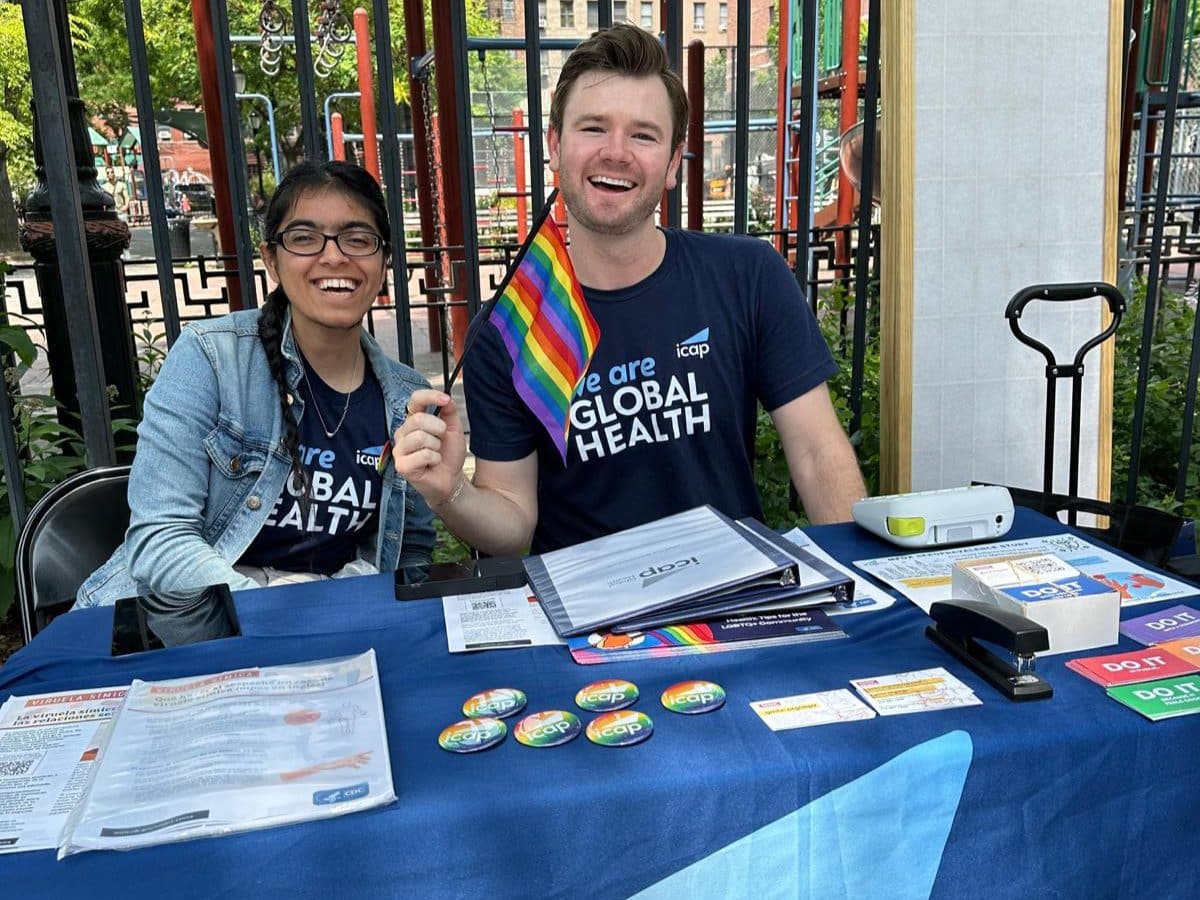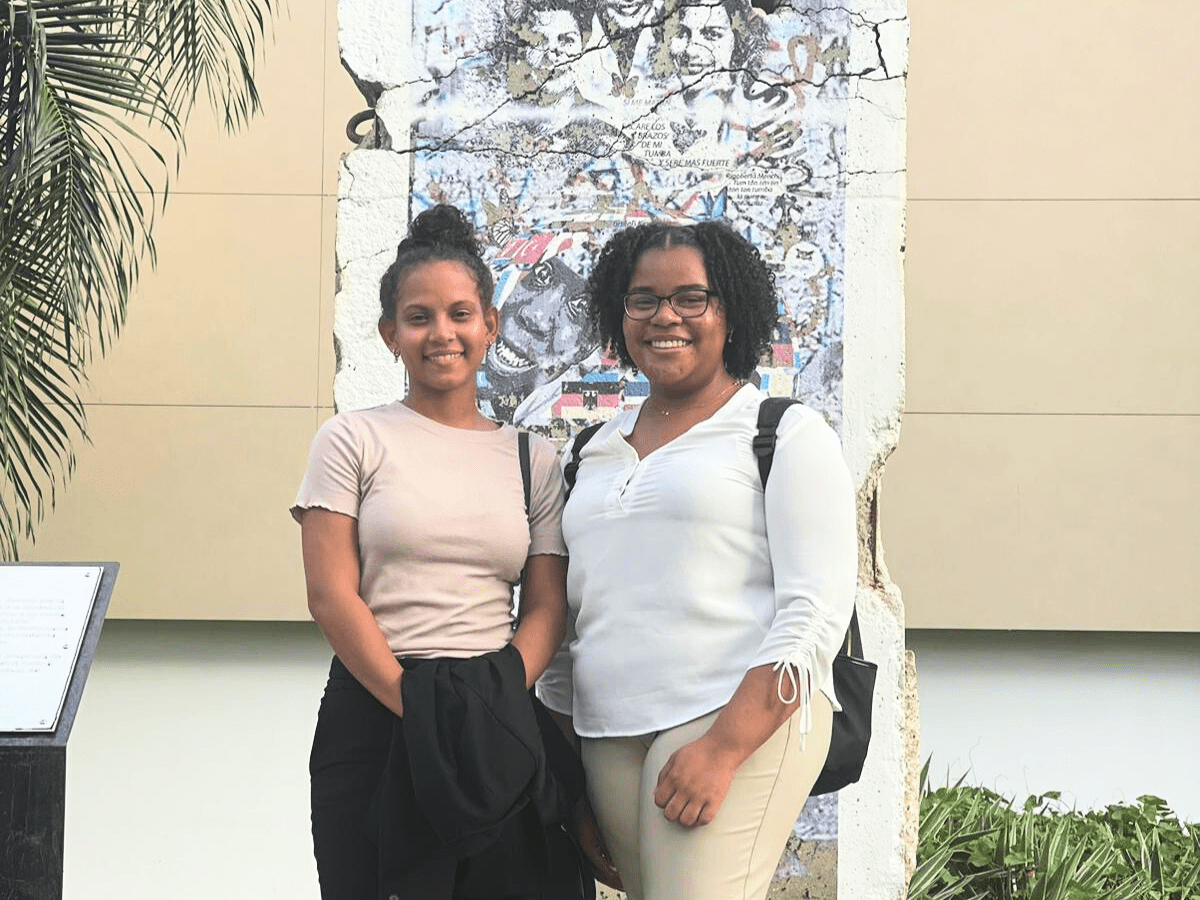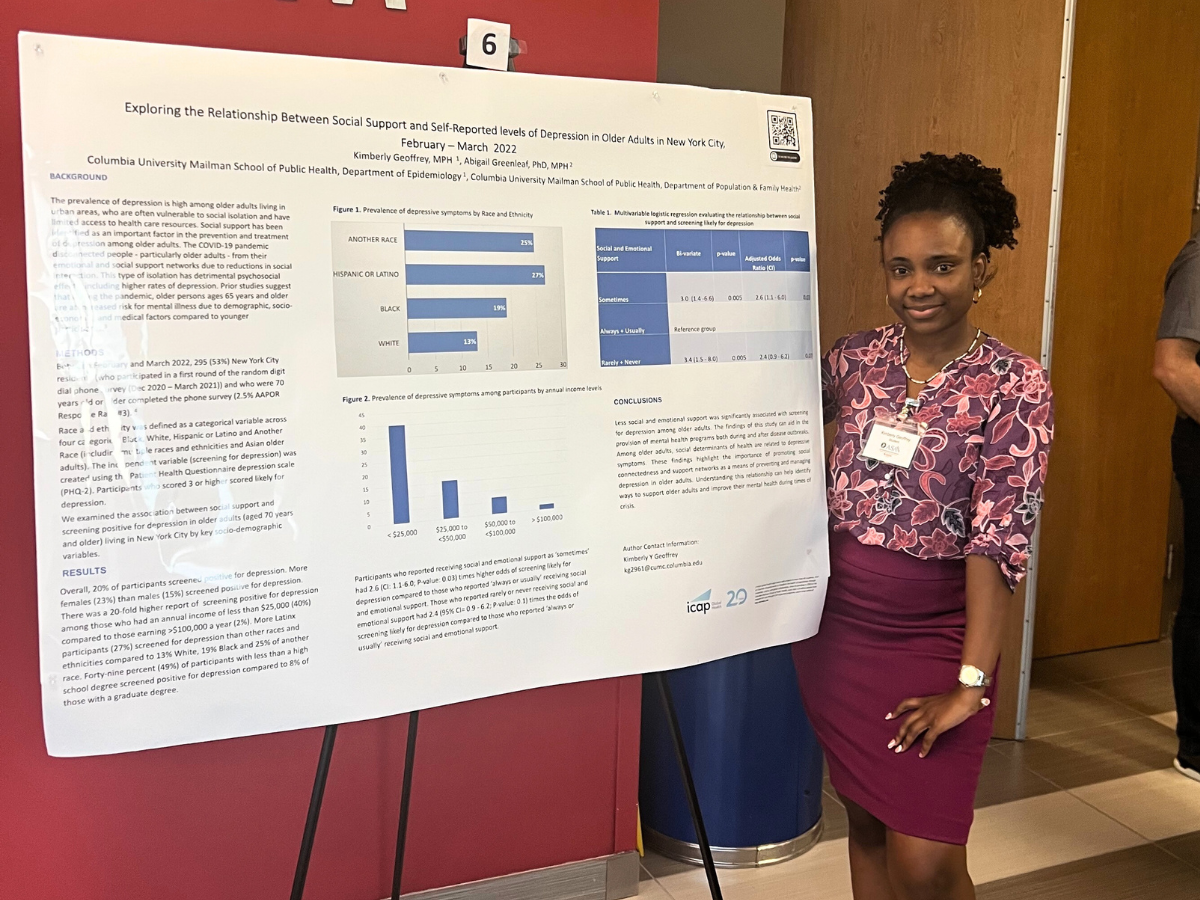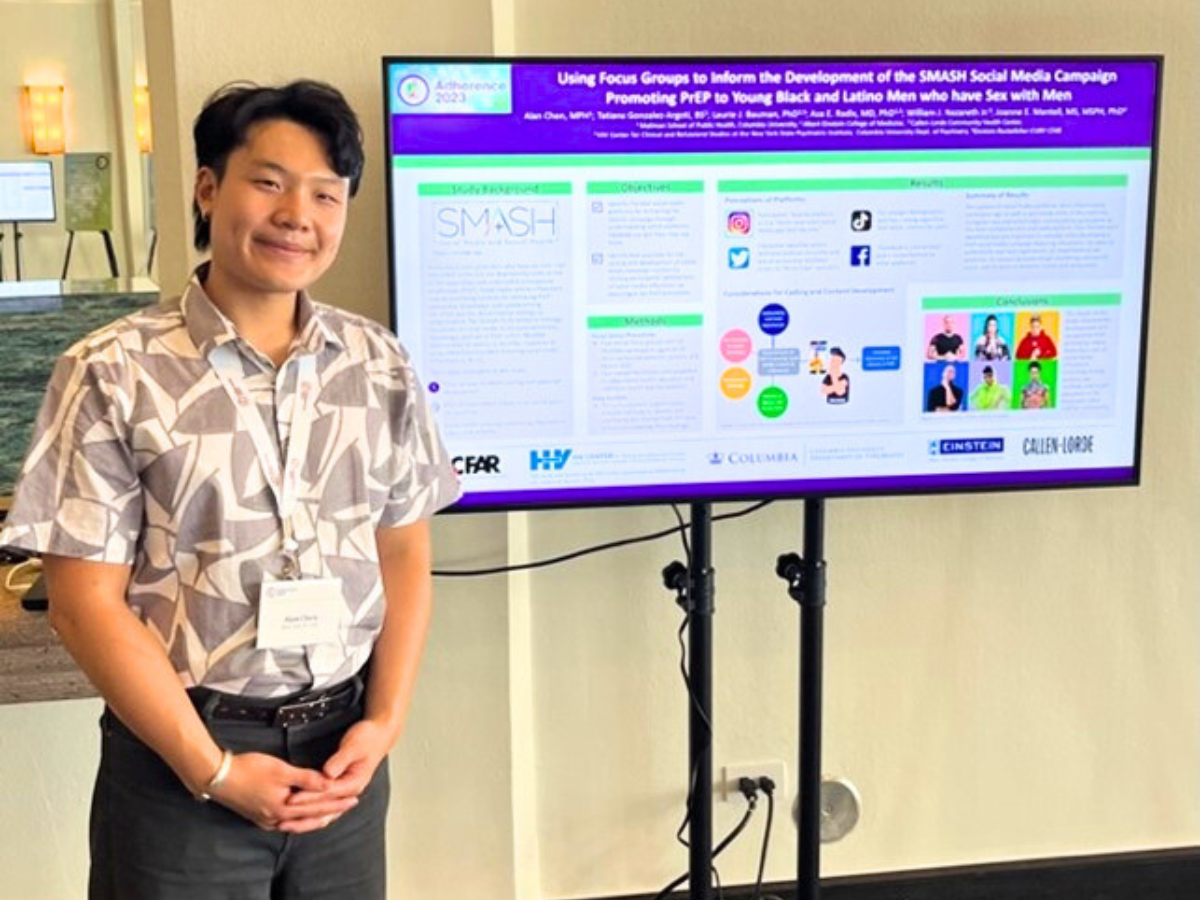I joined Columbia’s Mailman School of Public Health with a specific interest in its global health certificate – I was interested in better understanding the translation between research and practice in a global setting.
The master’s in public health (MPH) curriculum highlights global health priorities, challenges in implementation, key global health organizations, and global health experiences of faculty members. However, as true for any subject, learning happens both inside and outside of the classroom.
ICAP’s Next Generation Internship program has been a crucial component in my development as an MPH candidate. While the internship strengthened my quantitative and qualitative research skills, it was really the people I interacted with this summer in Eswatini and the meaningful connections I made that have been invaluable.
For three months, I joined ICAP’s Eswatini team as part of the Diabetes Evaluation for TB Patients in Eswatini for Improving Care and Treatment in TB/HIV Care (DETECT) study. With the overall goal of assessing diabetes prevalence and incidence in Eswatini, as well as TB treatment outcomes, my primary role was to support the in-country team with data management and quality control as we entered the final stages of data collection.
The in-country DETECT team was small but mighty. Their passion for the research was evident; every day – rain or shine, the team was determined to obtain the highest number of patient interviews. But it was their compassion for and relationships with collaborators and participants of the program that really stood out the most to me. At each facility, the project team interacted with the nurses and doctors as their friends and family. They would check in with each other about their lives, their kids, and how they are doing at work. The team went above and beyond their job responsibilities and genuinely cared for the people they worked with.
While conducting these visits, the project team would promote a safe space for me to learn about Eswatini culture. Often, they would encourage me to speak in siSwati, the local language. Their eyes beamed with pride as I tried to ask in siSwati, “Sawubona, unjani?” which means, “Hello, how are you?” to the ICAP drivers and health care providers.
The team also taught me about persisting stigma that communities in Eswatini face when it comes to certain health challenges, and how that affects care and treatment. During a particular field visit, Fansile – one of DETECT’s research assistants – pulled me aside to show me a trashcan outside of the TB clinic, which contained empty pill bottles left there by patients. Due to the stigma of HIV, Fansile told me that patients often dispose of pill bottle containers to take home the medication in other inconspicuous containers. Learning about stigma in a classroom versus seeing how it manifests in real life are two very different experiences. It’s vital to understand the challenges communities face not only so patients can initiate treatment but so that they are able to maintain it in the long-term.
During the 2023 Columbia Mailman School of Public Health Centennial Gala celebration, ICAP founder Dr. Wafaa El-Sadr was honored for her dedicated work in global health. She noted that, every day, she is inspired by the remarkable people she works with, tirelessly committed to science, partnership, and making a difference.
My experiences as a Next Generation intern echo the words spoken by Dr. El-Sadr. The essence of global health lies within the people. This summer, I met people who spread their passion for public health every day. The memories I have with them serve as a reminder of why I and many others like me joined this field: to contribute to a world where health care is a human right.
Sakthi Senthilvelan
MPH Candidate, Sociomedical Sciences & Certificate in Global Health
Mailman School of Public Health
Next Generation Intern


